The views expressed in our content reflect individual perspectives and do not represent the authoritative views of the Baha'i Faith.
There was a man in Haifa who disliked Abdu’l-Baha.
Whenever he saw the Master, he crossed the street to avoid him. Finally, one day he approached Abdu’l-Baha and said “So you are called the Servant of God.”
“Yes,” said Abdu’l-Baha, “that is my name.” (Abdu’l-Baha literally means ‘Servant of the Glory’)
“Well,” said the man proudly, “I am Moses.”
“Very well, Moses,” said Abdu’l-Baha, “meet me at this corner at seven o’clock in the morning tomorrow and we will go and serve the people like the great Moses did.”
The man agreed and when they met the next morning, Abdu’l-Baha took him on his routine of serving the unfortunates, helping the poor and needy, consulting with people and giving counsel. At six o’clock that evening when they returned to the spot where they had started, he was extremely weary.
“Remember, Moses,” said Abdu’l-Baha before they parted, “I’ll meet you here tomorrow morning at seven o’clock.”
Again they met the following morning and again Abdu’l-Baha took the man through his regular work. Returning at six o’clock that evening the man was very tired. Sternly, Abdu’l-Baha told him, “Remember, Moses, tomorrow morning I’ll meet you here.”
They met the third morning and again Abdu’l-Baha took him through his regular work day. When they returned that evening, the man was exhausted. As they parted, the man said “Abdu’l-Baha, tomorrow morning I will no longer be Moses.” – as told by Annamarie Honnold in Vignettes from the Life of Abdu’l-Baha, pp. 31-32.
These kinds of stories about Abdu’l-Baha’s life are legion, filling entire books. They called him “the Master” because of his spiritual mastery: his willingness to give his pants to a homeless man who wore rags, his insistence on integrating the gatherings he attended, his overflowing love for even his most virulent detractors, and his consistent reminders, through his deeds, that we all live in close proximity to the spiritual power of the Great Mystery.
Abdu’l-Baha’s regular routine of service to others took him through the poor quarters of Haifa and Akka, Palestine every day. Confined there by the Ottoman government from 1868 until 1908, first in a small, dank prison cell and later under house arrest, Abdu’l-Baha nevertheless managed to become the most beloved figure in the entire region—even to those who originally despised him:
When the Master came to Akka there lived there a certain man from Afghanistan, an austere and rigid Mussulman (Muslim). To him the Master was a heretic. He felt and nourished a great enmity toward the Master, and roused up others against him. When opportunity offered in gatherings of the people, as in the mosque, he denounced him with bitter words.
“This man,” he said to all, “is an imposter. Why do you speak to him? Why do you have dealings with him?” And when he passed the Master on the street he was careful to hold his robe before his face that his sight might not be defiled.
Thus did this Afghan. The Master, however, did thus: the Afghan was poor and lived in a mosque; he was frequently in need of food and clothing. The Master sent him both. These he accepted, but without thanks. He fell sick. The Master took him a physician, food, medicine, money. These, also, he accepted, but as he held out one hand that the physician might take his pulse, with the other he held his cloak before his face that he might not look upon the Master.
For twenty-four years the Master continued his kindnesses and the Afghan persisted in his enmity. Then at last one day the Afghan came to the Master’s door, and fell down, penitent and weeping, at his feet.
“Forgive me, sir!” he cried. “For twenty-four years I have done evil to you, for twenty-four years you have done good to me. Now I know that I have been in the wrong.”
The Master bade him rise and they became friends. – Myron Phelps, The Master in Akka, pp. 8-10.
This extreme kindness, patience and fortitude characterized Abdu’l-Baha throughout his entire life—which is why Baha’is regard him as their exemplar. He steadfastly refused to see others as his enemy, no matter how they treated him. He saw the humanity in everyone, and because of his love for that humanity he had no hatred for anyone. He counseled us to be loving friends to the fiercest of our foes:
Ye must become brilliant lamps. Ye must shine as stars radiating the light of love toward all mankind. May you be the cause of love amongst the nations. Thus may the world become witness that the Orient has ever been the dawning point of illumination, the source of love and reconciliation. Make peace with all the world. Love everybody; serve everybody. All are the servants of God. God has created all. He provideth for all. He is kind to all. Therefore, must we be kind to all. – Abdu’l-Baha, The Promulgation of Universal Peace, p. 347.
You May Also Like
Comments



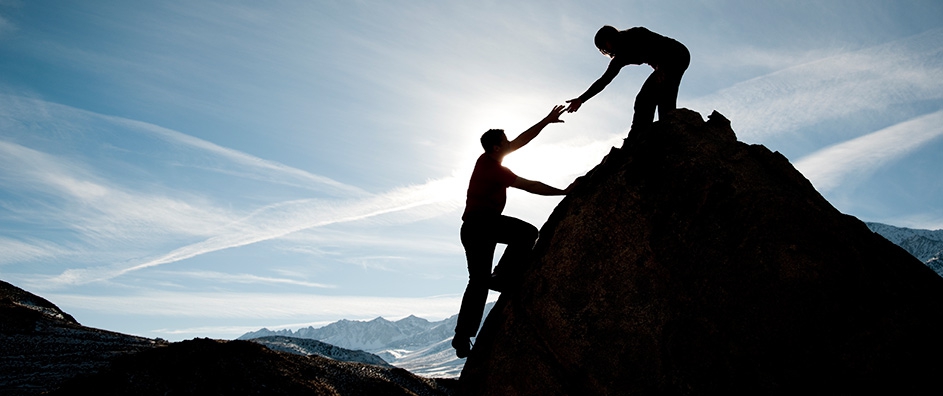
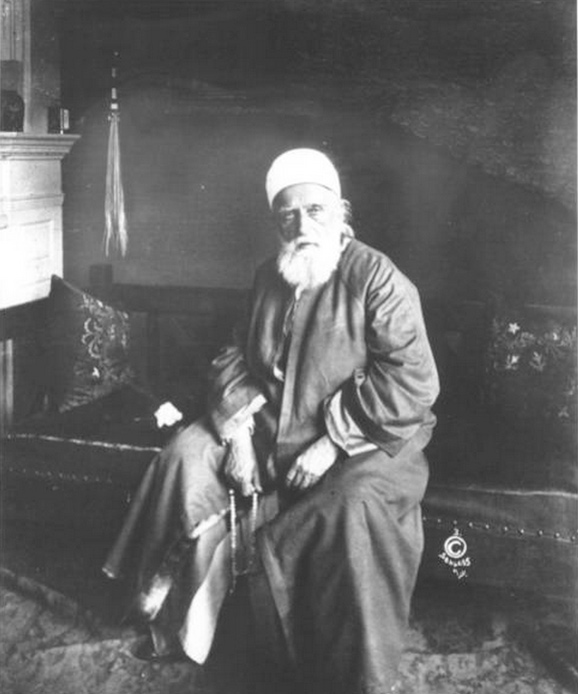

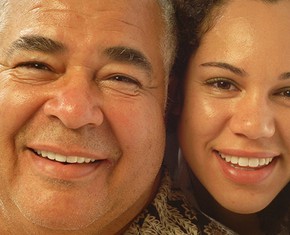
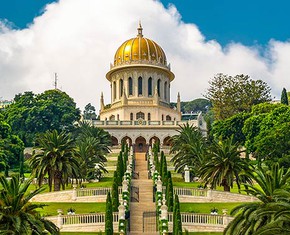
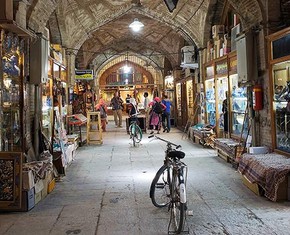









"Thus when Christ said: “Whosoever shall smite thee on the right cheek, turn to him the left one also,” it was for the purpose of teaching men not to take personal revenge. He did not mean that, if a wolf should fall upon a flock of sheep and wish to destroy it, the wolf should be encouraged to do so. No, if Christ had known that a wolf had entered the fold and was about to destroy the sheep, most certainly He would have prevented it.
As forgiveness is one of the attributes of the Merciful One, so also justice is one of the attributes of the Lord. The tent of existence is upheld upon the pillar of justice and not upon forgiveness. The continuance of mankind depends upon justice and not upon forgiveness. So if, at present, the law of pardon were practiced in all countries, in a short time the world would be disordered, and the foundations of human life would crumble. For example, if the governments of Europe had not withstood the notorious Attila, he would not have left a single living man.
Some people are like bloodthirsty wolves: if they see no punishment forthcoming, they will kill men merely for pleasure and diversion. One of the tyrants of Persia killed his tutor merely for the sake of making merry, for mere fun and sport. The famous Mutavakkil, the Abbasid, having summoned his ministers, councillors and functionaries to his presence, let loose a box full of scorpions in the assembly and forbade anyone to move. When the scorpions stung those present, he burst forth into boisterous laughter.
To recapitulate: the constitution of the communities depends upon justice, not upon forgiveness. Then what Christ meant by forgiveness and pardon is not that, when nations attack you, burn your homes, plunder your goods, assault your wives, children and relatives, and violate your honor, you should be submissive in the presence of these tyrannical foes and allow them to perform all their cruelties and oppressions. No, the words of Christ refer to the conduct of two individuals toward each other: if one person assaults another, the injured one should forgive him. But the communities must protect the rights of man."
'Abdu’l-Bahá
"Treasure the companionship of the righteous and eschew all fellowship with the ungodly."
"He should treasure the companionship of them that have renounced the world, and regard avoidance of boastful and worldly people a precious benefit."
"With all his heart he should avoid fellowship with evil-doers, and pray for the remission of their sins."
“O SON OF DUST! Beware! Walk not with the ungodly ...and seek not fellowship with him, for such companionship turneth the radiance of the heart into infernal fire.”
"O servants! This nether world is the abode of demons: Guard yourselves from approaching them. By demons is meant those wayward souls who, with the burden of their evil deeds, slumber in the chambers of oblivion. Their sleep is preferable to their wakefulness, and their death is better than their life." Bahá’u’lláh
“We know absence of light is darkness, but no one would assert darkness was not a fact. It exists even though it is only the absence of something else. So evil exists too, and we cannot close our eyes to it, even though it is a negative existence. We must seek to supplant it by good, and if we see an evil person is not influenceable by us, then we should shun his company for it is unhealthy.” Shoghi Effendi
“O ye beloved of the Lord! The Kingdom of God is founded upon equity and justice, and also upon mercy, compassion, and kindness to every living soul. Strive ye then with all your heart to treat compassionately all humankind—except for those who have some selfish, private motive, or some disease of the soul. Kindness cannot be shown the tyrant, the deceiver, or the thief, because, far from awakening them to the error of their ways, it maketh them to continue in their perversity as before. No matter how much kindliness ye may expend upon the liar, he will but lie the more, for he believeth you to be deceived, while ye understand him but too well, and only remain silent out of your extreme compassion.” ‘Abdu’l-Bahá
One must truly realize one self first. The truth of self realization is so simple that one realizes that there is no other than oneself and hence there is only love for all as the one sees the self in all. I wish everyone to take up on the beautiful journey of self realization.
Love,
Sridattadev.